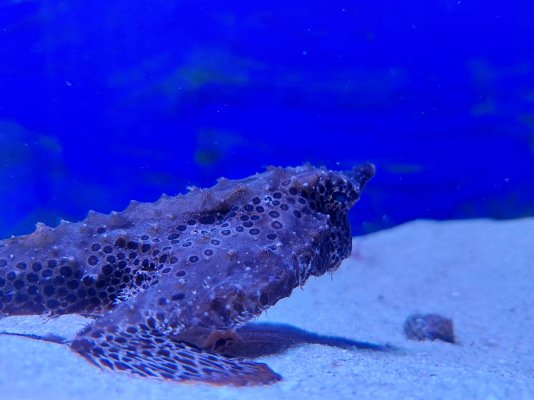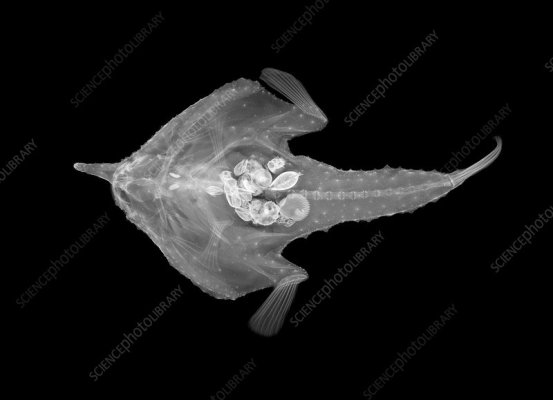Navigation
Install the app
How to install the app on iOS
Follow along with the video below to see how to install our site as a web app on your home screen.
Note: This feature may not be available in some browsers.
More options
You are using an out of date browser. It may not display this or other websites correctly.
You should upgrade or use an alternative browser.
You should upgrade or use an alternative browser.
walking batfish friend
- Thread starter seafarer's.reef
- Start date
- Tagged users None
@lion king is our resident predatory fish expert.
They need a mix of meaty and algal foods, as they are omnivorous.
do you have experience with one?@lion king is our resident predatory fish expert.
They need a mix of meaty and algal foods, as they are omnivorous.
not personally, no. They are rather uncommon in the hobby and need large tanks.do you have experience with one?
not personally, no. They are rather uncommon in the hobby
Hopefully someone with direct experience views this thread. I already got him to eat hermit crabs.not personally, no. They are rather uncommon in the hobby and need large tanks.
- Joined
- Jul 3, 2016
- Messages
- 6,797
- Reaction score
- 8,685
I don't have personal experience with this species, I do have information which can be useful. This species is all likelyhood will not survive long in captivity if not fed live foods. I recommend ghost shrimp and mollies. If you do get them to take dead food, what you feed will be very important. They follow all the same rules as other ambush type predatory fish. Click my name and find all threads, follow tge same info on lions, scorps, anglers, etc. One of the main reasons you do 't see these guys live long in captivity is because people refuse to offer a live diet.
I don't have personal experience with this species, I do have information which can be useful. This species is all likelyhood will not survive long in captivity if not fed live foods. I recommend ghost shrimp and mollies. If you do get them to take dead food, what you feed will be very important. They follow all the same rules as other ambush type predatory fish. Click my name and find all threads, follow tge same info on lions, scorps, anglers, etc. One of the main reasons you do 't see these guys live long in captivity is because people refuse to offer a live diet.
EDIT: this may be wrong, I think I may have gotten confused
Last edited:
this specimen is small. not large enough to eat mollies. Also, I never feed livebearers to my fish due to their lipid content.I don't have personal experience with this species, I do have information which can be useful. This species is all likelyhood will not survive long in captivity if not fed live foods. I recommend ghost shrimp and mollies. If you do get them to take dead food, what you feed will be very important. They follow all the same rules as other ambush type predatory fish. Click my name and find all threads, follow tge same info on lions, scorps, anglers, etc. One of the main reasons you do 't see these guys live long in captivity is because people refuse to offer a live diet.
Walking batfish are actually anglers that specialize in eating small invertebrates. Their lure ends in an esca that produces a substance that attracts worms and snails to the surface of the sand. In captivity, they probably would eat fish but would likely prefer crustacean and worm prey.
- Joined
- Jul 3, 2016
- Messages
- 6,797
- Reaction score
- 8,685
this specimen is small. not large enough to eat mollies. Also, I never feed livebearers to my fish due to their lipid content.
Guppies are fine for a smaller species.. If you want real world examples of long term success feeding live guppies and mollies, check out my threads that go back many years. Guppies and mollies are both misunderstood, they are both actually a brackish fish and meet many of the requirements of fat and protein that predator fish need. Most predators not be fed a live fish diet are extremely fat defiencient.
I've heard this tooWalking batfish are actually anglers that specialize in eating small invertebrates. Their lure ends in an esca that produces a substance that attracts worms and snails to the surface of the sand. In captivity, they probably would eat fish but would likely prefer crustacean and worm prey.
that is what I've already had success feeding with. also why I've waited many years for my sandbed (~5 in) to establish. filed with worms.Walking batfish are actually anglers that specialize in eating small invertebrates. Their lure ends in an esca that produces a substance that attracts worms and snails to the surface of the sand. In captivity, they probably would eat fish but would likely prefer crustacean and worm prey.
- Joined
- Jul 3, 2016
- Messages
- 6,797
- Reaction score
- 8,685
Walking batfish are actually anglers that specialize in eating small invertebrates. Their lure ends in an esca that produces a substance that attracts worms and snails to the surface of the sand. In captivity, they probably would eat fish but would likely prefer crustacean and worm prey.
Would they eat fiddler crabs or other more expensive crabs like emeralds. What kind of worms.
I typically feed fish that exist in the environment which my fish come from. Usually fry of various species. My groupers and boxfish particularly like these. Realistically these fish would never be able to acquire the amount of fat found in livebearers naturallyGuppies are fine for a smaller species.. If you want real world examples of long term success feeding live guppies and mollies, check out my threads that go back many years. Guppies and mollies are both misunderstood, they are both actually a brackish fish and meet many of the requirements of fat and protein that predator fish need. Most predators not be fed a live fish diet are extremely fat defiencient.
- Joined
- Jul 3, 2016
- Messages
- 6,797
- Reaction score
- 8,685
I typically feed fish that exist in the environment which my fish come from. Usually fry of various species. My groupers and boxfish particularly like these. Realistically these fish would never be able to acquire the amount of fat found in livebearers naturally
People need accessible alrernative to a natural that may be impossible in captivity. Feeding fry that you breed yourself woukd be safe, but feeding saltwater fish will eventually spread disease. Not may predatory fish are going to survive from fry being bred from a hobbyist, one of my preds would literally eat 100 at a single feeding.
Back to the batfish, what will be an accessible diet to feed these guys. What type of worms, are they accessible. Alternative crustaceans are easy, ghost shrimp and ifbtgey eat hard bodied inverts, fiddler crabs. I will bet the worms will be the bulk of their fat and protein, if you can't provide the worms, then what. I do know they never survive when people try and treat them as other species, feeding dead food exclusively.
Not sure exactly, never kept one myself. I've seen x-rays of the fish with stomachs full of shells from assorted snails and I assume hermits.Would they eat fiddler crabs or other more expensive crabs like emeralds. What kind of worms.
Would they eat fiddler crabs or other more expensive crabs like emeralds. What kind of worms.
A large component of the batfish's diet is mollusks. This evening I will feed squid tentacles, as they are similar to worms and will hopefully prompt an instinctual response.People need accessible alrernative to a natural that may be impossible in captivity. Feeding fry that you breed yourself woukd be safe, but feeding saltwater fish will eventually spread disease. Not may predatory fish are going to survive from fry being bred from a hobbyist, one of my preds would literally eat 100 at a single feeding.
Back to the batfish, what will be an accessible diet to feed these guys. What type of worms, are they accessible. Alternative crustaceans are easy, ghost shrimp and ifbtgey eat hard bodied inverts, fiddler crabs. I will bet the worms will be the bulk of their fat and protein, if you can't provide the worms, then what. I do know they never survive when people try and treat them as other species, feeding dead food exclusively.
As for fish feeding, there is ich in my system. however, my uv sterilizer completely prevents the spread of any disease even with the most ich sensitive fish in the hobby present in my aquarium. Luckily I have an ideal supply of marine fish fry.
Attachments
They are known to swallow clams and rocks exposed in the sand. it is the primary component of their diet.
- Joined
- Jul 3, 2016
- Messages
- 6,797
- Reaction score
- 8,685
Not sure exactly, never kept one myself. I've seen x-rays of the fish with stomachs full of shells from assorted snails and I assume hermits.
Snails too, maybe, mollusks are good food and I recommend including these as a good part of a dead diet. If you are able to get them taking dead food maybe just keeping the diet high in things like squid, mussels, clams, would be enough to keep them satisfied. Squid is very high in protein, you would still need to figure out the fat.
Keep us informed on your success and what you start feeding.
Those shells may also play a role in their required nutrition
Last edited:
Similar threads
- Replies
- 4
- Views
- 323
- Replies
- 17
- Views
- 229
- Replies
- 14
- Views
- 762
- Replies
- 7
- Views
- 714




















